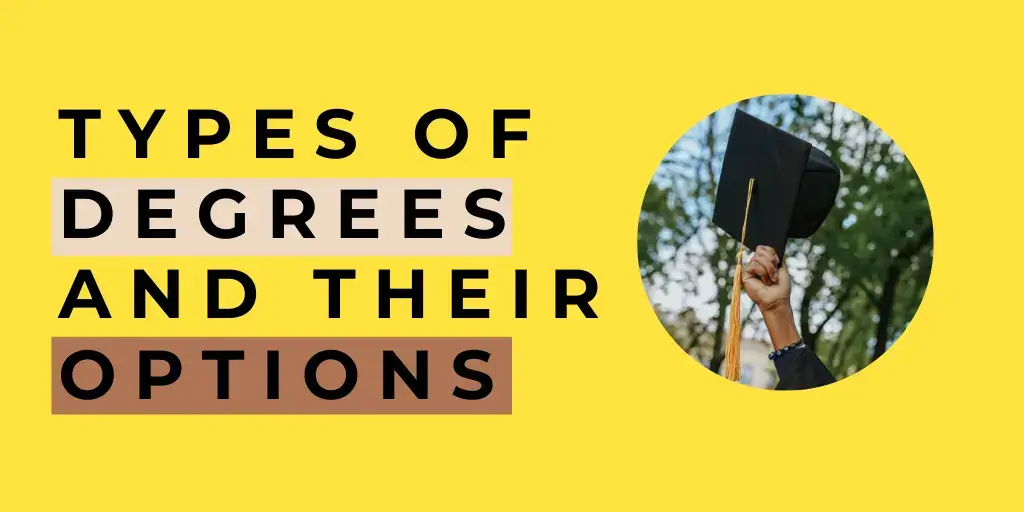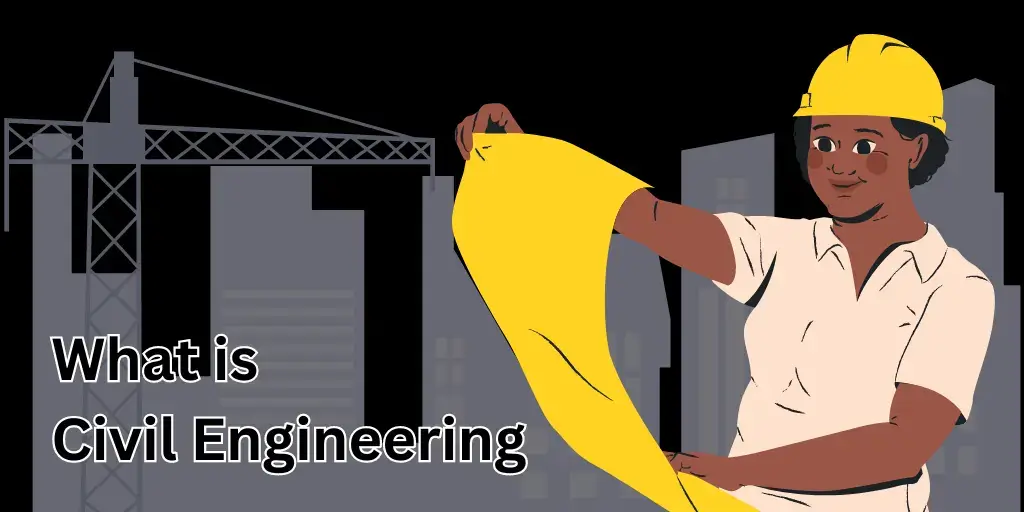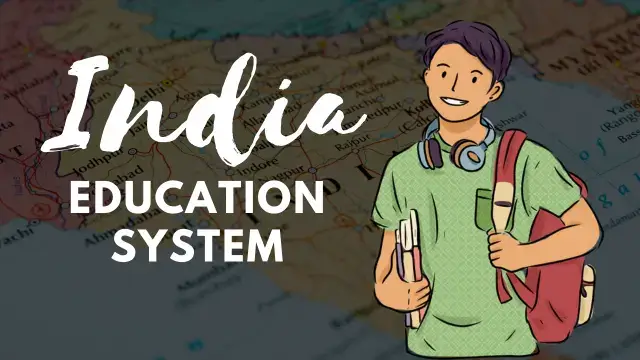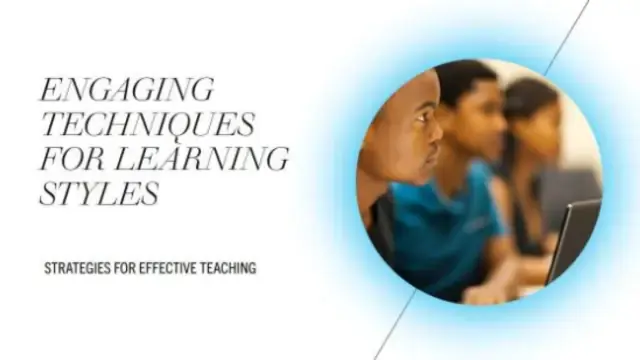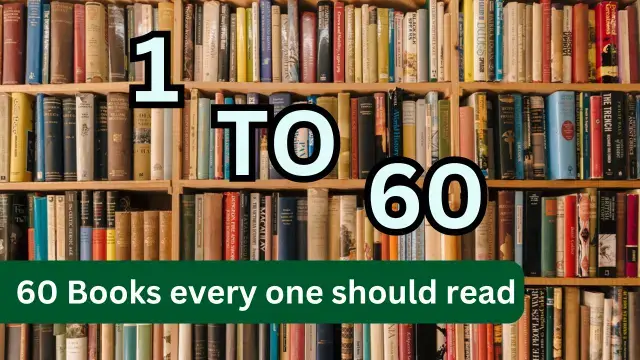
60 Books every one should read
Explore a diverse collection of 60 must-read books, spanning classics, fiction, non-fiction, and philosophy. Discover timeless stories and profound insights for every reader.
Fiction:
-
To Kill a Mockingbird by Harper Lee
A classic novel exploring themes of racial injustice and moral growth in the American South. -
1984 by George Orwell
A dystopian novel that explores the consequences of a totalitarian society. -
One Hundred Years of Solitude by Gabriel Garcia Marquez
A magical realist novel chronicling the Buendía family in the fictional town of Macondo. -
The Great Gatsby by F. Scott Fitzgerald
A tale of wealth, love, and the American Dream during the Jazz Age. -
Brave New World by Aldous Huxley
A dystopian novel examining the implications of a society controlled by technology and consumerism. -
The Catcher in the Rye by J.D. Salinger
A classic novel narrated by Holden Caulfield, a disenchanted teenager navigating the challenges of adolescence. -
The Alchemist by Paulo Coelho
A philosophical novel about Santiago, a shepherd boy, on a journey to discover his personal legend and fulfill his dreams. -
The Kite Runner by Khaled Hosseini
A poignant story about friendship, betrayal, and redemption set against the backdrop of Afghanistan's tumultuous history. -
The Handmaid's Tale by Margaret Atwood
A dystopian novel that explores themes of power, gender, and control in a theocratic society. -
The Lord of the Rings by J.R.R. Tolkien
An epic fantasy trilogy that follows the quest to destroy the One Ring and save Middle-earth. -
Beloved by Toni Morrison
A powerful novel exploring the legacy of slavery and the haunting effects it has on individuals and communities. -
The Road by Cormac McCarthy
A post-apocalyptic tale of a father and son's journey through a desolate landscape, exploring themes of survival and hope. -
The Shadow of the Wind by Carlos Ruiz Zafón
A mystery set in post-World War II Barcelona, intertwining love, literature, and the consequences of the Spanish Civil War. -
The Girl with the Dragon Tattoo by Stieg Larsson
A gripping mystery novel featuring investigative journalist Mikael Blomkvist and hacker Lisbeth Salander. -
The Hitchhiker's Guide to the Galaxy by Douglas Adams
A humorous science fiction series following the misadventures of Arthur Dent as he travels through space.
Non-Fiction:
-
Sapiens: A Brief History of Humankind by Yuval Noah Harari
An exploration of the history and impact of Homo sapiens on the world. -
The Immortal Life of Henrietta Lacks by Rebecca Skloot
A biography that delves into the ethical implications of medical research using Henrietta Lacks' cells. -
The Power of Habit: Why We Do What We Do in Life and Business by Charles Duhigg
A study on the science of habits and how they can be transformed. -
Thinking, Fast and Slow by Daniel Kahneman
An exploration of the two systems that drive human thought processes: the fast, intuitive system and the slow, deliberate system. -
Educated by Tara Westover
A memoir about a woman who grows up in a strict and abusive household but eventually escapes to learn about the world through education. -
Quiet: The Power of Introverts in a World That Can't Stop Talking by Susan Cain
An exploration of introversion and the value it brings to a society that often celebrates extroversion. -
The Wright Brothers by David McCullough
A biography chronicling the lives and achievements of aviation pioneers Orville and Wilbur Wright. -
Homo Deus: A Brief History of Tomorrow by Yuval Noah Harari
A thought-provoking examination of the future of humanity, exploring potential developments in technology, politics, and more. -
The Sixth Extinction: An Unnatural History by Elizabeth Kolbert
An exploration of mass extinctions throughout Earth's history and the impact of human activities on biodiversity. -
Into the Wild by Jon Krakauer
A true story about Christopher McCandless, who leaves society behind to live in the Alaskan wilderness, exploring themes of self-discovery and nature. -
Blink: The Power of Thinking Without Thinking by Malcolm Gladwell
A book exploring the power of intuition and snap judgments, and how they can shape decision-making. -
The Emperor's New Mind: Concerning Computers, Minds, and the Laws of Physics by Roger Penrose
A thought-provoking exploration of consciousness and the limits of artificial intelligence. -
The Immortal Irishman: The Irish Revolutionary Who Became an American Hero by Timothy Egan
A biography of Thomas Francis Meagher, an Irish revolutionary who later became a general in the American Civil War. -
The Emperor of Ocean Park by Stephen L. Carter
A legal thriller exploring themes of race, privilege, and family secrets. -
Lab Girl by Hope Jahren
A memoir by a geobiologist, offering insights into her life in science, the natural world, and personal challenges.
Classics:
-
Crime and Punishment by Fyodor Dostoevsky
A psychological novel exploring morality, guilt, and redemption. -
Jane Eyre by Charlotte Brontë
- A classic novel focusing on the moral and spiritual development of the orphaned Jane Eyre.
-
Moby-Dick by Herman Melville
A novel that delves into themes of obsession, revenge, and the nature of good and evil. -
Pride and Prejudice by Jane Austen
A classic romance novel exploring social class, manners, and morality in early 19th-century England. -
The Odyssey by Homer
An epic poem chronicling the adventures of Odysseus as he tries to return home after the Trojan War. -
Wuthering Heights by Emily Brontë
A gothic novel that explores themes of love, revenge, and the supernatural on the Yorkshire moors. -
The Brothers Karamazov by Fyodor Dostoevsky
A philosophical novel examining morality, faith, and the complexities of family relationships. -
The Count of Monte Cristo" by Alexandre Dumas
An adventure novel that follows Edmond Dantès' quest for revenge and redemption after being wrongfully imprisoned. -
Fahrenheit 451 by Ray Bradbury
A dystopian novel that explores the consequences of a society where books are banned and "firemen" burn any that are found. -
Anna Karenina by Leo Tolstoy
A tragic tale of love and societal expectations set against the backdrop of 19th-century Russia. -
A Tale of Two Cities by Charles Dickens
A historical novel set in London and Paris before and during the French Revolution, exploring themes of resurrection and sacrifice. -
The Grapes of Wrath by John Steinbeck
A classic novel depicting the struggles of the Joad family during the Great Depression, addressing social and economic issues. -
Crime and Punishment by Fyodor Dostoevsky
A psychological thriller exploring the moral consequences of crime and redemption. -
The Picture of Dorian Gray" by Oscar Wilde
A novel about the corruption of innocence and the consequences of a hedonistic lifestyle. -
Heart of Darkness by Joseph Conrad
A novella exploring the dark realities of colonialism and human nature in the Congo.
Science and Philosophy:
-
Cosmos by Carl Sagan
A journey through space and time, exploring the wonders of the universe. -
Man's Search for Meaning by Viktor E. Frankl
A psychological exploration of finding purpose and meaning in the face of suffering. -
The Selfish Gene by Richard Dawkins
A groundbreaking work on evolutionary biology, exploring the gene's role in natural selection. -
The Tao of Physics by Fritjof Capra
An exploration of the connections between modern physics and Eastern mysticism. -
Sophie's World by Jostein Gaarder
An introduction to philosophy through a fictional narrative, making complex ideas accessible. -
Gödel, Escher, Bach: An Eternal Golden Braid by Douglas Hofstadter
A Pulitzer Prize-winning exploration of the connections between the works of Gödel, Escher, and Bach, touching on the nature of human thought. -
The Structure of Scientific Revolutions by Thomas S. Kuhn
A seminal work that introduced the concept of paradigm shifts in the history of scientific thought. -
The Emperor of All Maladies: A Biography of Cancer by Siddhartha Mukherjee
A comprehensive history of cancer, exploring its biological and cultural aspects. -
The God Delusion by Richard Dawkins
- A critique of religion and an exploration of the scientific worldview.
-
The Art of War by Sun Tzu
An ancient Chinese text on military strategy and tactics, offering insights into leadership and conflict resolution. -
The Elegant Universe: Superstrings, Hidden Dimensions, and the Quest for the Ultimate Theory by Brian Greene
An exploration of string theory and the quest for a unified theory of physics. -
The Gene: An Intimate History by Siddhartha Mukherjee
A comprehensive history of genetics, exploring the scientific and ethical implications of our understanding of genes. -
Guns, Germs, and Steel: The Fates of Human Societies by Jared Diamond
A Pulitzer Prize-winning exploration of the role of geography and biology in shaping human history. -
The Art of Loving by Erich Fromm
A philosophical exploration of the nature of love and its significance in human life. -
Being Mortal: Medicine and What Matters in the End by Atul Gawande
A reflection on mortality, aging, and the role of medicine in end-of-life care.
Last update: 2024-03-09 18:25:52
 Clenta
Clenta

